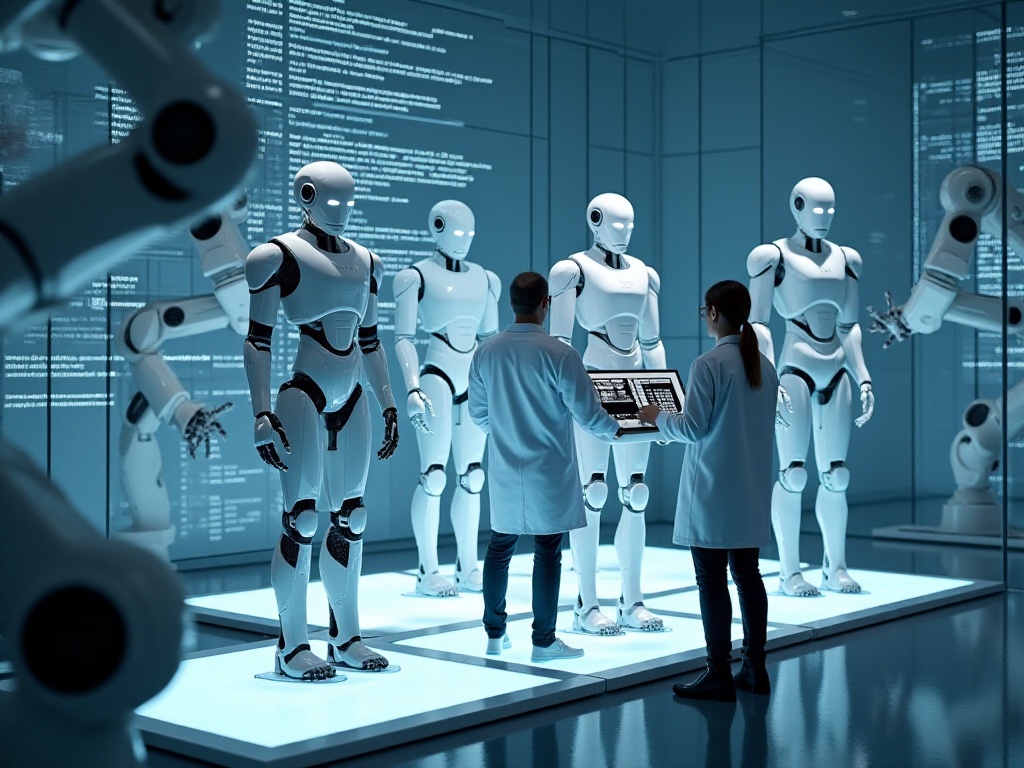Introduction
I never expected AI assistants to develop so quickly! As someone who frequently interacts with various AIs, I've been absolutely stunned recently. GPT-4's performance, in particular, has truly opened my eyes, and sometimes I feel it's become almost magical. Every day as I interact with it, I discover new surprises. Let me share my experiences with you - you're sure to be amazed.
Cognitive Upgrade
To be honest, when I first used ChatGPT, I thought it was just okay - at most a chatbot. But looking at it now, I can only say I was too naive. Today's AI assistants are like having a super assistant in your pocket - give them a task, and they'll provide eye-opening solutions.
Just the other day, I had an extremely complex market research report, around a hundred pages long. Previously, such reports would give me a headache - just understanding the relationships between different data points was challenging enough. But this time I gave the report to GPT-4 for analysis, and the results truly shocked me. It not only extracted all the key points from the report but also did an in-depth analysis combining historical data, and even discovered some market trends I had completely missed. The final analysis report was, honestly, more professional than what several analysts at our company had written.
This experience made me realize that AI assistants are no longer just simple tools that can talk. They're now more like an on-call team of experts, ready to provide professional insights on any question. And most impressively, their learning ability is extremely strong - the more you communicate with them, the deeper their understanding becomes, and their advice becomes increasingly precise.

Capability Boundaries
Through this period of deep usage, I've discovered that AI assistants are truly a treasure. Their capabilities are extremely broad, and they're quite professional in every field. Let me share my detailed experiences.
First, let's talk about their performance in knowledge Q&A and information organization. Recently, I was researching a blockchain project but wasn't very familiar with the field. So I had the AI assistant help me organize the development history of blockchain technology. The materials it compiled were perfect, from the birth of Bitcoin to the latest technological breakthroughs, with every important timeline clearly marked. It would also proactively explain technical terms, making it easy for a newcomer like me to understand. If I had to research these materials myself, it would probably take several days, and I might not have organized them so clearly.
In creative writing and content creation, the AI assistant's performance was even more surprising. I remember once needing to write promotional copy for a newly launched smartwatch but couldn't think of anything fresh. There were too many similar products on the market, and I felt everything I wrote was cliché. When I was at a loss, I decided to ask the AI assistant for ideas. I told it the product features and target audience, and it immediately brainstormed several creative directions. For example, approaching from users' daily scenarios to describe how this watch changes people's living habits, or focusing on the technological angle to highlight the product's innovative features. We ultimately used one of these ideas, and the resulting copy was not only eye-catching but also had great circulation effects.
Moreover, the AI assistant's performance in professional fields is also quite outstanding. In programming development, it can not only review code but also provide optimization suggestions. In data analysis, it can quickly process large amounts of data and find key correlations. In language translation, its performance is becoming increasingly natural, especially with technical terms where accuracy is very high.

Practical Applications
Speaking of practical applications, I think the AI assistant's greatest value is its collaborative ability. It's like having an assistant who never rests, always ready to help you handle various tasks.
In project management, I can't do without it now. After every meeting, I give it the meeting notes and have it help me organize the key points and develop follow-up action plans. It not only quickly grasps the core content of meetings but also proactively reminds me of easily overlooked details based on context. For example, once when the team was discussing a new feature development plan, the AI assistant not only organized the specific development steps but also reminded us to consider user privacy protection issues, which was indeed an important aspect we hadn't thought of at the time.
In handling customer feedback, the AI assistant's performance is even more impressive. Just the other day we encountered a tricky problem where a customer reported our software was showing anomalies under specific conditions. I told the AI assistant about the user's described scenario and related error messages, and it immediately began analyzing possible causes. It not only provided several potential problem points but also offered specific investigation plans. Following its suggestions, we actually found and quickly resolved the issue. This ability to analyze problems is sometimes faster than our technical team's response.
In daily work, the AI assistant can also help me handle many tedious but important tasks. For example, with email replies, it can help me draft various types of business emails with a professional and appropriate tone. When preparing presentations, it can provide many valuable suggestions, including optimizing content structure and methods for displaying key data. Even in creative design, it can provide many unique ideas.

Future Trends
Looking at the current development momentum, the future of AI assistants is truly exciting. According to the latest research data, GPT-4's performance in many aspects can already rival human experts. Especially in advanced cognitive abilities like logical reasoning and creative thinking, its rate of progress is simply astounding.
Many industry experts predict that by 2025, the global AI assistant market size could exceed 100 billion USD. This number reflects the enormous potential of the entire industry. More and more enterprises are now beginning to integrate AI assistants into their business processes, from customer service to product development, and AI's application scenarios continue to expand.
Moreover, as technology continues to advance, AI assistants' capability boundaries keep expanding. They can now understand more complex scenarios, handle more professional issues, and even integrate knowledge across different fields. For example, in the medical field, AI assistants can help doctors analyze medical records and provide diagnostic suggestions; in the legal field, they can assist lawyers in processing large volumes of case documents and provide relevant legal reference materials.
Most exciting is that AI assistants are becoming increasingly "human-like." They can not only understand literal meanings but also capture emotions and context in language. This progress means future AI assistants will be able to provide more personalized and humanized services.

Practical Tips
Through this period of deep usage, I've summarized some practical tips that can help everyone better use AI assistants.
First, the way you ask questions is particularly important. Don't expect AI assistants to read your mind - you need to describe your questions as specifically as possible. For example, rather than asking vague questions like "how to write copy," it's better to specify what type of copy you want to write, who the target audience is, and what effect you want to achieve. This way, AI can provide more targeted suggestions.
Second, learn to guide AI's thinking direction. Although AI is smart, it still thinks according to certain logic. If you can give it a clear thinking framework, its performance will be better. For example, when doing proposal analysis, you can tell it which dimensions to think from and what factors need to be considered.
Another important point is to make good use of AI's iterative ability. Don't expect to get perfect answers in one go - you can gradually optimize results through multiple rounds of dialogue. For example, when writing copy, you can first have AI provide a draft, then give modification suggestions based on your needs, and reach a satisfactory result through several rounds of adjustments.
In actual work, I've found that treating AI assistants as team members works best. They can be your thinking assistant, helping you organize ideas; your research partner, helping you collect and organize materials; or your execution assistant, helping you complete various specific tasks. The key is finding the right way to collaborate.

Concluding Thoughts
Honestly, watching the rapid development of AI assistants makes me both excited and a bit anxious. I'm excited because these intelligent assistants have indeed brought tremendous convenience to our work and life. Now much content is indistinguishable between human-created and AI-generated - this progress rate has truly exceeded many people's imagination.
But it also brings some thoughts: How should we properly use these AI tools? How do we maintain our thinking ability while improving efficiency? How do we make AI our assistant rather than becoming completely dependent on it?
I think the key is finding a balance point. AI is indeed powerful, but it's ultimately a tool, an assistant. We need to learn to use it to expand our abilities, not replace our thinking. For example, when writing copy, we can use AI to spark inspiration, but the final creativity still needs to go through our own thinking and judgment. When solving problems, we can refer to AI's suggestions but still need to make decisions based on actual situations.
The development of AI assistants is just beginning, and there will be more exciting breakthroughs in the future. The key is that we need to embrace these changes with an open mind, learn to progress together with AI, and let it truly become an effective assistant in improving our work efficiency and quality of life.
If you're also using AI assistants, welcome to share your experiences and insights in the comments section. Let's discuss together how to better master this powerful tool!








